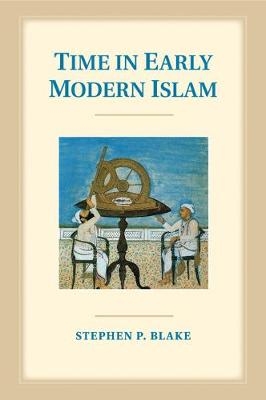
Time in Early Modern Islam
Calendar, Ceremony, and Chronology in the Safavid, Mughal and Ottoman Empires
Seiten
2017
Cambridge University Press (Verlag)
978-1-108-41280-3 (ISBN)
Cambridge University Press (Verlag)
978-1-108-41280-3 (ISBN)
Stephen P. Blake compares the Islamic concept of time across the empires of the Safavids, Ottomans and Mughals. Each empire created a new temporal system, fashioning a new solar calendar and a new round of rituals and ceremonies from the cultural resources at hand. This book explains the impact of Islamic science on the West.
The prophet Muhammad and the early Islamic community radically redefined the concept of time that they had inherited from earlier religions' beliefs and practices. This new temporal system, based on a lunar calendar and era, was complex and required sophistication and accuracy. From the ninth to the sixteenth centuries, it was the Muslim astronomers of the Ottoman, Safavid and Mughal empires who were responsible for the major advances in mathematics, astronomy and astrology. This fascinating study compares the Islamic concept of time, and its historical and cultural significance, across these three great empires. Each empire, while mindful of earlier models, created a new temporal system, fashioning a new solar calendar and era and a new round of rituals and ceremonies from the cultural resources at hand. This book contributes to our understanding of the Muslim temporal system and our appreciation of the influence of Islamic science on the Western world.
The prophet Muhammad and the early Islamic community radically redefined the concept of time that they had inherited from earlier religions' beliefs and practices. This new temporal system, based on a lunar calendar and era, was complex and required sophistication and accuracy. From the ninth to the sixteenth centuries, it was the Muslim astronomers of the Ottoman, Safavid and Mughal empires who were responsible for the major advances in mathematics, astronomy and astrology. This fascinating study compares the Islamic concept of time, and its historical and cultural significance, across these three great empires. Each empire, while mindful of earlier models, created a new temporal system, fashioning a new solar calendar and era and a new round of rituals and ceremonies from the cultural resources at hand. This book contributes to our understanding of the Muslim temporal system and our appreciation of the influence of Islamic science on the Western world.
Dr Stephen P. Blake is Professor Emeritus at the University of Minnesota and St Olaf College, Minnesota. His books include Shahjahanabad: The Sovereign City in Mughal India, 1639–1739 (Cambridge, 2002) and Half the World: The Social Architecture of Safavid Isfahan, 1590–1722 (1999).
1. Safavid, Mughal and Ottoman empires; 2. Calendar; 3. Ceremony; 4. Chronology: era; 5. Chronology: millenarian.
| Erscheinungsdatum | 15.08.2017 |
|---|---|
| Zusatzinfo | Worked examples or Exercises; 3 Maps |
| Verlagsort | Cambridge |
| Sprache | englisch |
| Maße | 152 x 230 mm |
| Gewicht | 340 g |
| Themenwelt | Geschichte ► Allgemeine Geschichte ► Mittelalter |
| Geschichte ► Hilfswissenschaften ► Chronologie | |
| Geisteswissenschaften ► Geschichte ► Regional- / Ländergeschichte | |
| Geisteswissenschaften ► Religion / Theologie ► Islam | |
| Naturwissenschaften ► Physik / Astronomie ► Astronomie / Astrophysik | |
| ISBN-10 | 1-108-41280-7 / 1108412807 |
| ISBN-13 | 978-1-108-41280-3 / 9781108412803 |
| Zustand | Neuware |
| Haben Sie eine Frage zum Produkt? |
Mehr entdecken
aus dem Bereich
aus dem Bereich
eine neue Geschichte des Mittelalters
Buch | Hardcover (2023)
C.H.Beck (Verlag)
CHF 53,20


